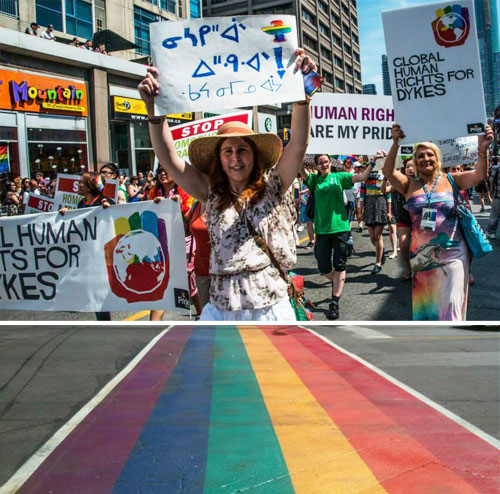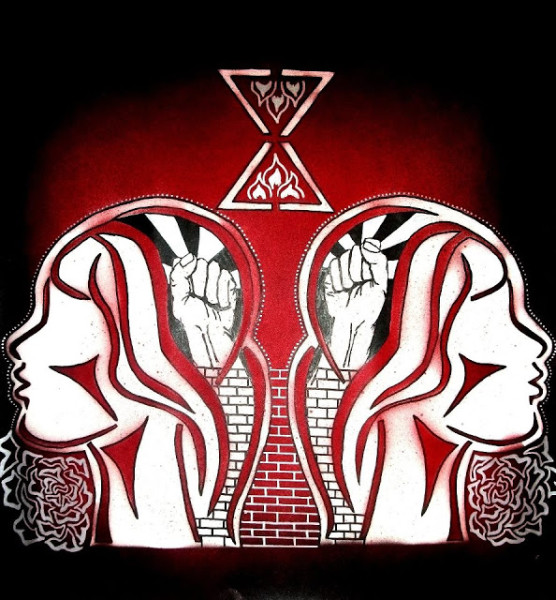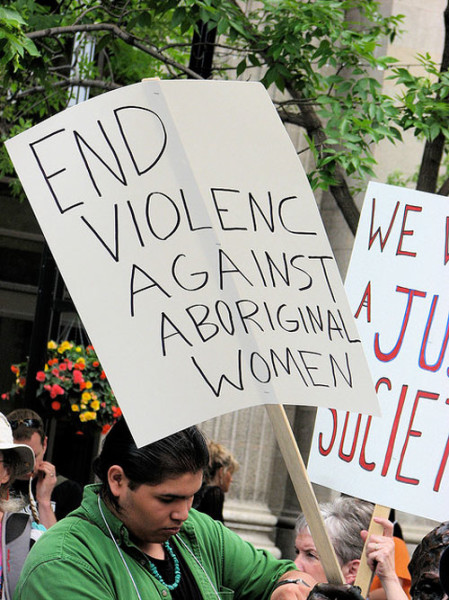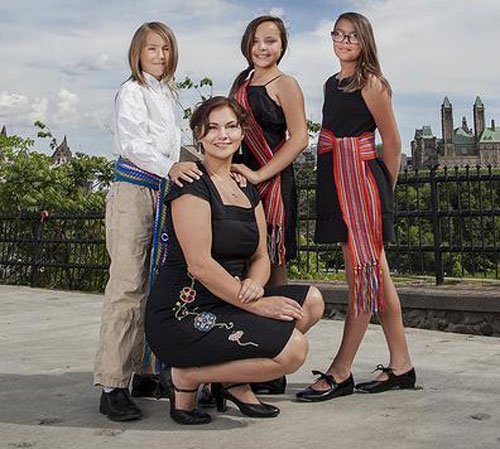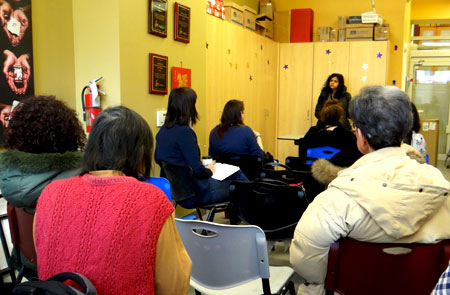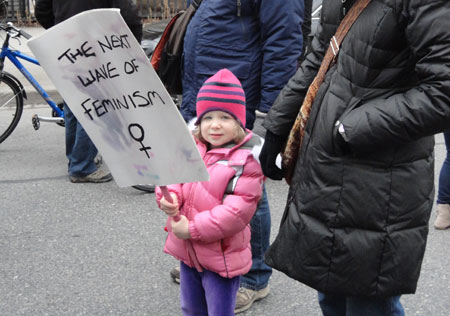View Nellie’s Has Pride pics here!
On World Pride 2014 in Toronto, thousands marched down a rainbow line of streets for the right to be attracted to whomever they wanted without being discriminated against or persecuted.
A bit of history on Gay rights in Canada:
1969 – Pierre Trudeau (Justice Minister and Attorney General of Canada) introduces Bill C-150, which decriminalizes homosexuality in Canada.
1971 – Canada’s first gay rights march took place in Ottawa. The Body Politic, Canada’s first gay liberation newspaper, was published in Toronto and continued for about 15 years. A short run documentary series, Coming Out, became Canada’s first LGBT television series when it aired on Maclean-Hunter cable in Toronto in 1972.
1975 & 1976 – Large scale protests after the police raided gay establishments in Quebec and in Ottawa in preparation for the 1976 Olympics.
1977 – Quebec became the first jurisdiction (larger than a city or county) in the world to prohibit discrimination based on “sexual orientation” in the public and private sectors. The Quebec Charter of Human Rights and Freedoms prohibits discrimination in employment, housing and certain services and other activities, but it does not apply to federally regulated activities in Quebec.
The same year, the Canadian Immigration Act was amended, removing a ban on homosexual men as immigrants.
1981 – A major bathhouse raid occurred in Toronto. This outraged the gay community and an estimated 3000 people poured into the streets of Toronto to protest the raid. Infrequent bathhouse raids continue to occur to this day.
1986 – Sexual orientation was added to the Ontario Human Rights Code as a prohibited ground for discrimination. Like most other human rights acts in Canada, this act prohibits discrimination in employment, housing, services and certain other activities in the public and private sectors, but the provincial law does not apply to federally regulated activities.
1987 – Sexual orientation was added to the Manitoba Human Rights Act, and included in the newly adopted Yukon Human Rights Act.
1988 – New Democratic Party Member of Parliament (MP) Svend Robinson became the first MP to come out, declaring that he is gay to the media outside the House of Commons. In the same year, the United Church of Canada became the first church in Canada to allow the ordination of gays and lesbians.
1992 Kim Campbell – then Justice Minister and Attorney General of Canada– announced that Canada was lifting its ban on homosexuals in the Canadian Forces, allowing them to serve openly and live on-base with their partners. Canada was one of the first countries to allow homosexuals in the military. Sexual orientation was added to the human rights laws of New Brunswick and British Columbia.
1994 – The Supreme Court ruled that gays and lesbians could apply for refugee status based on their sexual orientation.
1995 – The Supreme Court of Canada ruled in Egan v. Canada that “sexual orientation” should be ‘read in’ to Section 15 of the Canadian Charter of Rights and Freedoms. The ruling had a wide impact since section 15 applies to all laws, including human rights acts that prohibit discrimination by all employers, landlords, service providers and governments. A court in Ontario ruled that gay and lesbian couples wishing to adopt jointly should be allowed to do so, making Ontario the first province to allow this. Currently, nearly all provinces allow gay and lesbian couples (and single gays and lesbians) to adopt children. The Newfoundland Human Rights Act was amended to include sexual orientation.
1996 – Sexual orientation was added to the Canadian Human Rights Act, an anti-discrimination law that applies to federally regulated activities throughout Canada.
2003Ontario begins Marrying same-sex couples
2004 – The House of Commons and the Senate passed Bill C-250, which added “sexual orientation” to the “hate propaganda” section of the Criminal Code, thus making it illegal for people to propagate hate based on sexual orientation. This did not include clergymen however.
2004 – Scott Brison became Canada’s first openly gay cabinet member.
2005– The Civil Act of Marriage is passed. Canada is the fourth country in the world to officially sanction gay marriage on a national level. Bill Blair becomes the first chief of police participating in the Toronto gay parade.
2013 Premier Kathleen Wynne becomes Canada’s first openly gay first minister
2014 Toronto World Pride
On this last date there were some issues:
Canada had refused to issue visitor’s visas to 10 Ugandan activists invited to Toronto’s World in June over concerns they would stay to seek asylum.
Gay rights advocates say the decisions by the Canadian visa posts in Nairobi and London speak to the hypocrisy of the Stephen Harper government, which, in February, joined in condemning Uganda for passing one of the world’s harshest anti-homosexuality laws.
“We are shocked and appalled. These individuals from Uganda are some of the most courageous heroes,” said Andrea Houston of #ENDhatelaws, a coalition founded in response to homophobia/transphobia across the globe, amid the controversy over anti-gay laws passed in Russia prior to the Winter Olympics.
“They are here to share their stories and have every intention to go home after the conference, because they all have work to do in Uganda. The assumption is they are here to claim asylum. The question is: Why can’t they, coming from the most hostile place in the world to LGBTQ people?”
A review of the visa decisions showed the Ugandan’s applications were rejected for a combination of reasons: lack of travel history, family ties in Canada and in Uganda, and insufficient funds for the trip.
Canadian officials subsequently reversed an earlier decision and granted visitor’s visas to some of the Ugandan gay activists who had been denied a chance to attend the World Pride Human Rights Conference in Toronto.
At the end of World Pride 2014 there was a double rainbow over Toronto, not one, but two rainbows for Pride! Someone was smiling on us!


